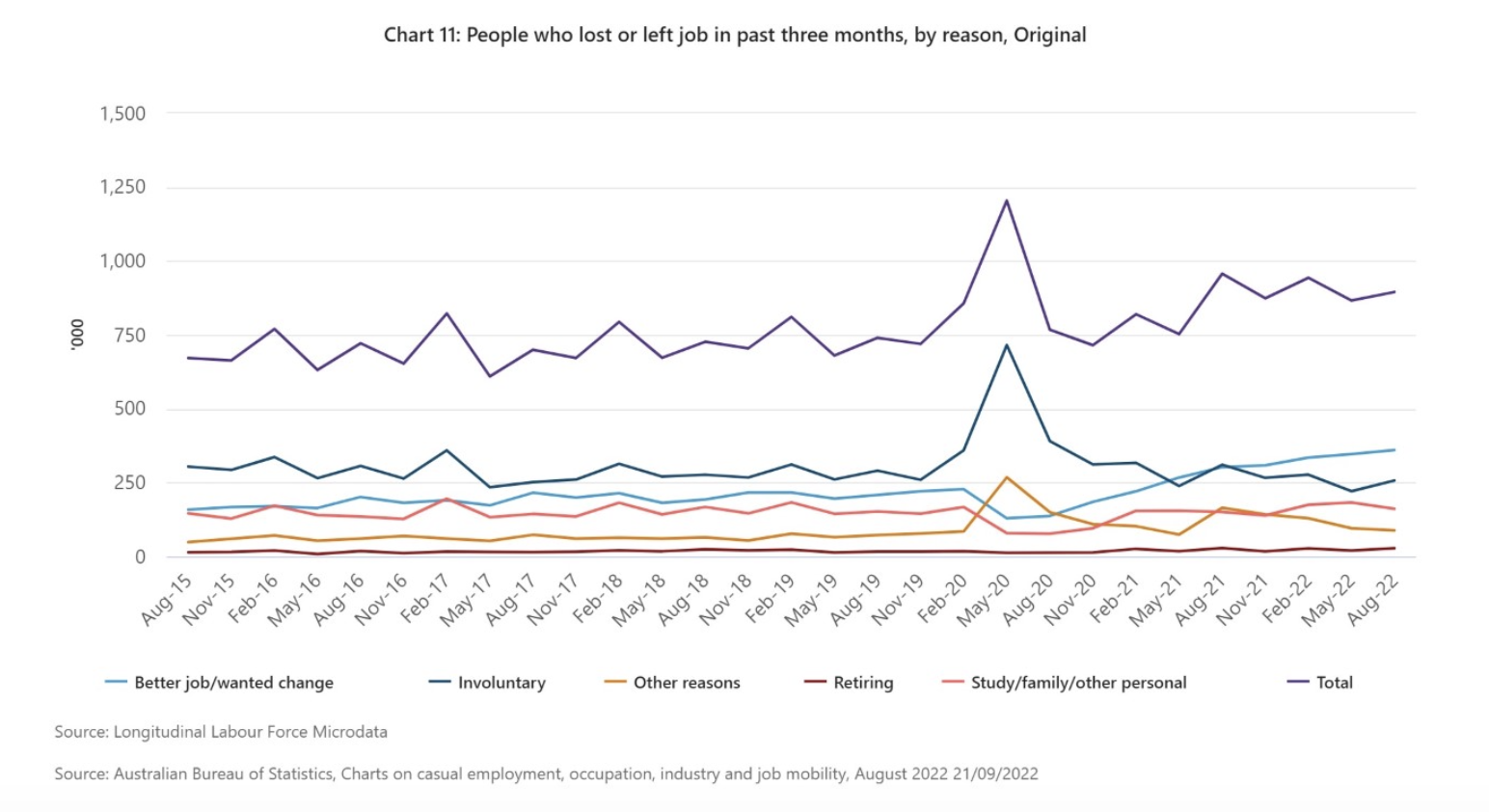Rohan Christie is a Founding Director of Kingfisher Recruitment, an organisation shaping futures in the built environment since 2005. Kingfisher strives to bring insight, expertise, and a high level of care to the recruitment process in line with its defined purpose and values. Kingfisher live and breath the built environment, recruiting for all that we market, finance, design, develop, build, operate, manage, and maintain to live, work and play.
2022 has solved the question of “When will we see the end of Covid?” Other questions have been posed such as:
“Where is my luggage?”
“How did the RBA get their prediction of interest rate rises so wrong?”
and for those in Melbourne, “Is Ross Lyon really the right choice for St Kilda?”
Another question being posed is “Where is the workforce right now?”
Unemployment in Australia at present is at 3.5%, which translates into there being more jobs than people that can fill those jobs. The fight for talent right now is very real, with organisations trying to fill key roles to facilitate business growth struggling to find the people they need.
One of the figures tracked by the Australian Bureau of Statistics is Job Mobility, which tracks people who have lost or left their job. Between 2015 and February 2020, there were approximately 70,000 people every month who moved jobs wanting change or a better opportunity. As of August 2022, this number had jumped to 360,000 people in the quarter, or 120,000 per month. So the lack of people is not because of people unwilling to move into a better role.
The answer may therefore lie in migration. Because of Covid and international border restrictions, more people left Australia than arrived. Migrants historically have been younger than the Australian population average, meaning they offset challenges associated with Australia’s ageing population. The Centre for Population recently published a report titled “Australian labour force participation: historical trends and future prospects” highlighting that “Migrants also possess skills and qualifications that contribute to our economy. The sharp fall in overseas migration, and the role this plays in slowing population growth, is expected to have broad and long‐lasting impacts on the Australian population and economy.”
There is also an impact of how people view their working life, as highlighted in an Australian Government Treasury report published in April 2021, reviewing Australian Labour Force Participation: Historical Trends and Future Prospects. Their conclusion was there has been a significant shift from full-time to part-time workforce participation over several decades within the workforce. This means that individuals who used to have a job for life, are now moving to several part time roles, which makes finding full time employees more difficult.
Finally, there is now a global war being waged for younger talent required to fill the jobs required to keep an economy moving forward. Attending the recent UDIA Conference in Sydney and listening to a presentation on the global workforce, Australia was ranked the 3rd most desirable country for talent mobility in 2020. With our hard border closures, the impact on talented young people coming to Australia was immediate and there is now much higher global competition for this talent.
So what does this mean? For a start, to keep our businesses moving forward, we need to treat recruitment as a skill, not as a transactional event. Putting mechanisms in place to find great people now takes a lot of work and is an investment everyone needs to make. When great people are in demand they will take a more passive role in seeking new opportunities, expecting to be sought out, rather than them applying to roles. We also need to make sure that the great people we have want to stay, by building teams aligned to an organisation’s purpose and values. Remuneration is a consideration, but most people change roles for reasons other than money.
Finally, until we get more people into Australia, the fight for great talent will continue to be difficult and a game you must win to get ahead.


